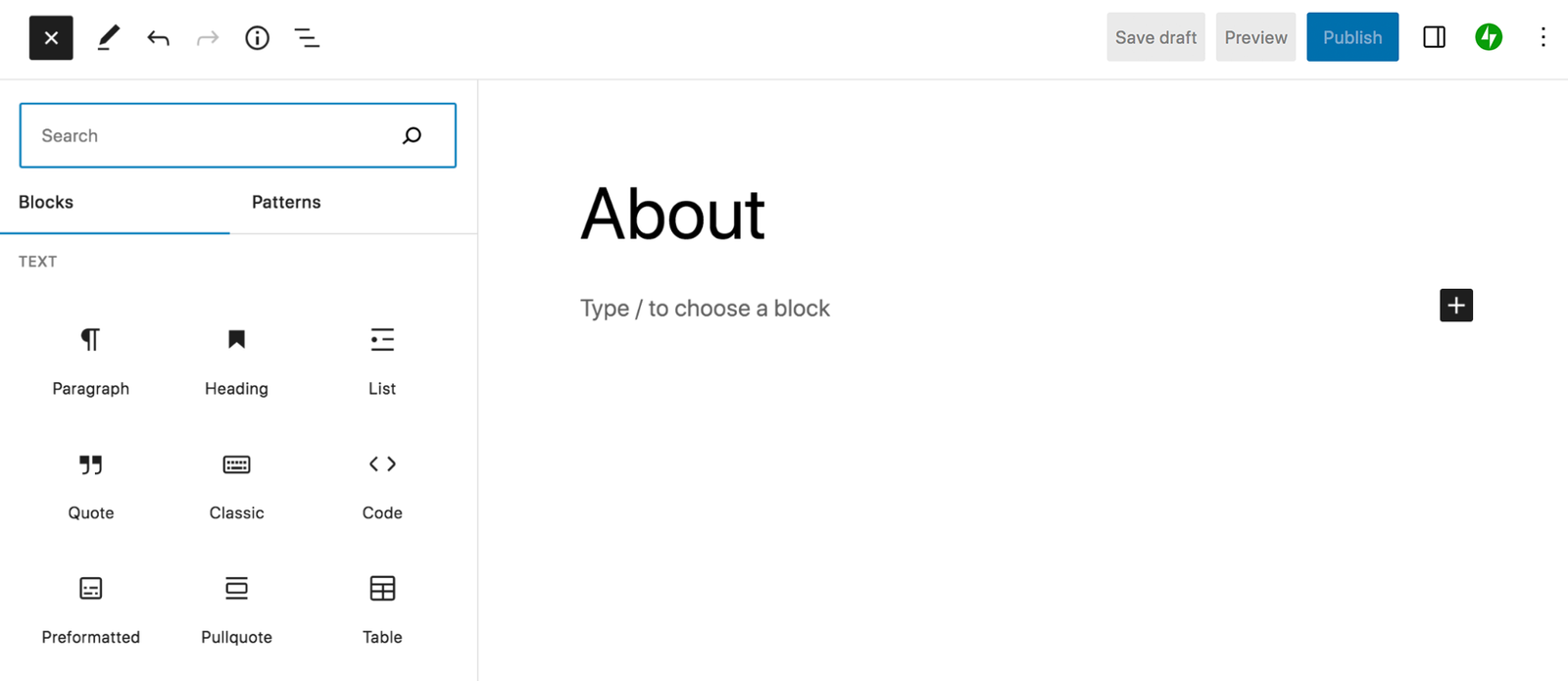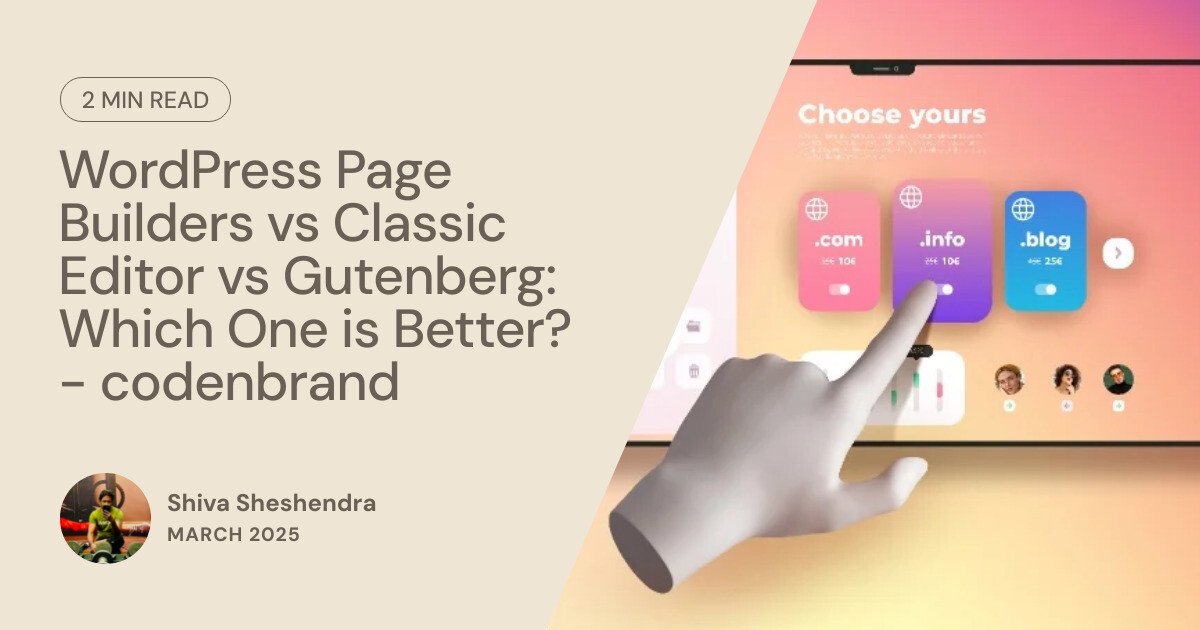WordPress Page Builders vs Classic Editor vs Gutenberg: Which One is Better?
When building a WordPress website, one major decision is whether to use a page builder, the Classic Editor, or Gutenberg. Each option has its own pros and cons, catering to different types of users. Let’s compare all three to help you decide which suits your needs better.
What is the Classic Editor?

The Classic Editor is the traditional WordPress editor that provides a simple content creation experience, similar to a word processor. It relies on a plain text box with formatting options and requires coding knowledge (HTML and shortcodes) for advanced customization.
Pros of the Classic Editor:
- Lightweight & Fast: Does not add extra code, keeping the site performance optimal.
- Full Control Offers a clean interface, allowing developers full customization.
- Better for Bloggers Great for writing-focused websites where design flexibility is secondary.
- Compatible with Plugins Works seamlessly with most WordPress plugins without extra adjustments.
Cons of the Classic Editor:
- Limited Design Capabilities: Customizing layouts requires coding knowledge.
- Not User-Friendly for Beginners: Non-technical users may struggle to design complex layouts.
- Outdated Approach: Lacks modern drag-and-drop functionality.
You can disable Gutenberg and other page builders and use classic editor by installing a plugins from Plugin Store Classic Editor
What is Gutenberg?

Gutenberg, also known as the Block Editor, is WordPress’s modern default editor. It introduces a block-based editing system, allowing users to add and arrange content blocks for better design flexibility.
Pros of Gutenberg:
- Native to WordPress: No need for additional plugins; built directly into WordPress.
- Flexible Layouts: Offers drag-and-drop block-based editing for better customization.
- Lightweight: Faster than most page builders while providing decent design flexibility.
- SEO-Friendly Generates cleaner code than page builders, improving site speed and SEO.
Cons of Gutenberg:
- Limited Compared to Page Builders: Lacks the advanced styling options and features of full-fledged page builders.
- Learning Curve: Users transitioning from the Classic Editor may find it unfamiliar.
- Plugin & Theme Compatibility: Some older themes and plugins may not fully support Gutenberg.
What are WordPress Page Builders?

Page builders like Elementor, WPBakery, Divi (theme), and Beaver Builder provide a visual drag-and-drop interface to design pages without coding. They allow users to create professional layouts with ease.
Pros of Page Builders:
- Drag-and-Drop Simplicity: No coding required; ideal for beginners.
- Pre-Made Templates: Comes with ready-made designs, speeding up development.
- Highly Customizable: Advanced styling options, animations, and widgets.
- Live Preview: See changes in real time without switching between editor and preview mode.
Cons of Page Builders:
- Performance Issues: Can slow down websites due to extra code and scripts.
- Learning Curve: Some builders have complex interfaces that take time to master.
- Plugin Conflicts: May not always work smoothly with all WordPress themes and plugins.
- Costs: Some advanced features require premium versions.
Which One Should You Choose?
- Choose Classic Editor if: You prefer a minimalistic, fast, and content-focused approach with full control over your website.
- Choose Gutenberg if: You want a modern, block-based editing experience with a balance between simplicity and flexibility.
- Choose a Page Builder if: You need an easy-to-use tool with drag-and-drop features to create visually stunning designs without coding.
Conclusion
All three editors serve different purposes. If you’re a blogger or developer who values speed and control, the Classic Editor is a solid choice. Gutenberg is great for those who want a native, block-based editor with more design flexibility. However, if you want complete customization with an intuitive design process, a page builder is the better option. Your choice ultimately depends on your website’s goals and your technical expertise.


